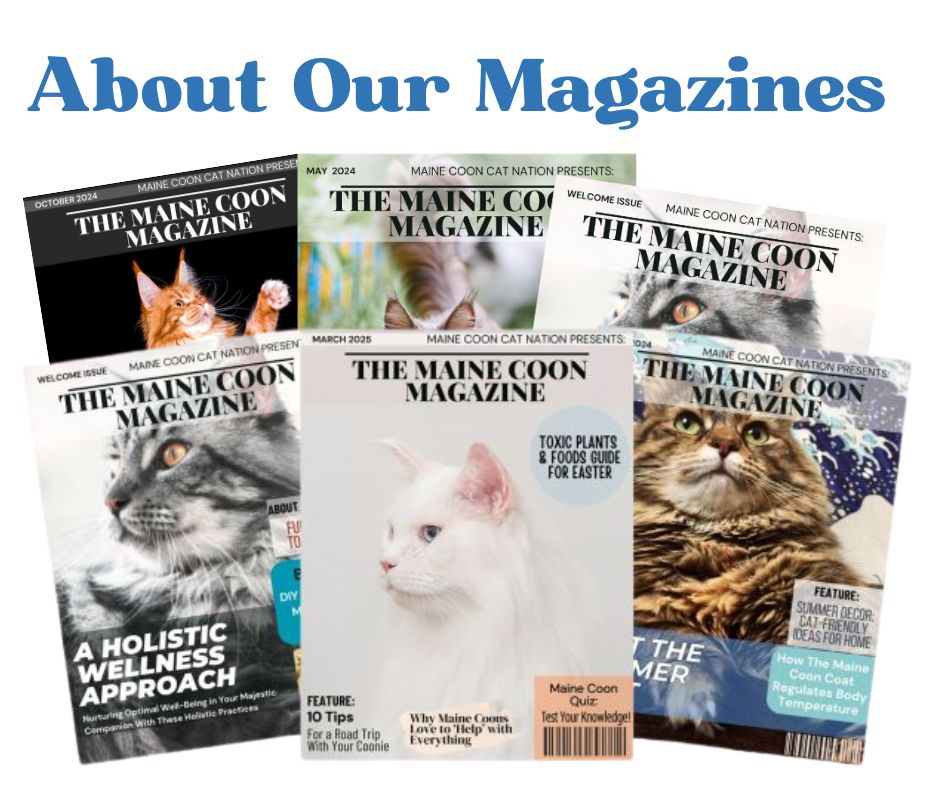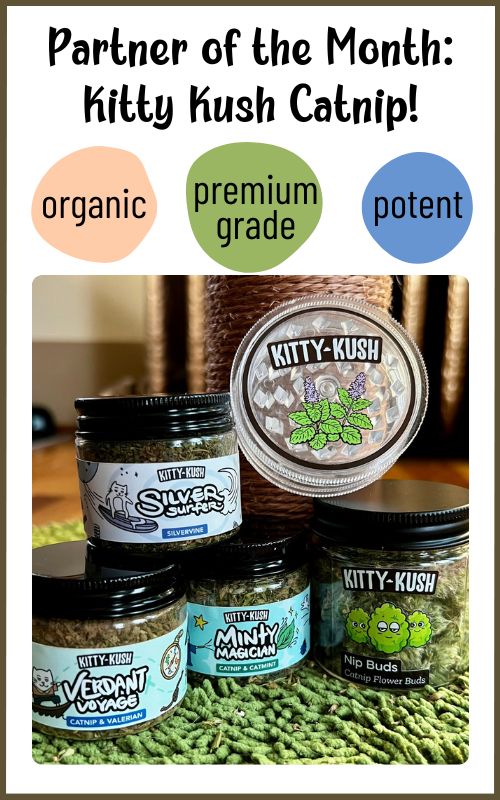- Home
- Maine Coon Cat Health
- Cat Oral Health
- Feline Gingivitis
Feline Gingivitis And Stomatitis
by: The Maine Coon Cat Nation Community!
Feline gingivitis is a common yet serious condition that affects a cat's gums, leading to redness, inflammation, and discomfort.
It can progress to more severe issues like stomatitis or tooth loss, making early detection and proper care essential for your Coonie’s health.
Most (if not all!) cat parents have had to deal with gingivitis, tartar, tooth removal or feline dental care at some point. Here is Sergiy's story and community advice:
Gingiviostomatitis
by: Charles in San Antonio, Texas
I have a 1-year-old Maine Coon named Sergiy, and I love him so much.
He's had some health challenges during his little life. I brought him home at 12 weeks, and shortly after, he started having diarrhea and a decreased appetite.
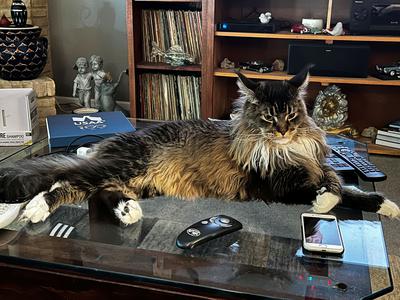 Sergiy - 3 days after
Sergiy - 3 days afterI took him to a cat-only vet, where we sent out a stool sample for testing.
The initial in-office test didn’t reveal anything obvious, so the vet gave Sergiy a couple of shots and prescribed some medications, including FortiFlora, a probiotic.
Thankfully, within a week, his appetite returned, and the diarrhea resolved.
At his 6-month check-up, the vet noticed that Sergiy’s gums were very red and diagnosed him with feline gingivitis.
I began using a vet-recommended toothbrush and toothpaste. It wasn’t easy, but Sergiy liked the toothpaste flavor, and I managed to brush his teeth a few times a week.
Six months later, Sergiy developed a red growth on his gums above a molar.
When I took him back to the vet, they called the growth a “flap” and scheduled a dental cleaning to remove it.
Unfortunately, during the procedure, the vet found severe gum inflammation despite the regular brushing.
The vet called me with heartbreaking news: all of Sergiy’s teeth had to be removed due to the severity of the gingivitis and stomatitis. I was devastated.
Sergiy is still so young - just 13 months old - but I knew I couldn’t let him continue suffering.
After bringing him home, stitches in his gums and all, Sergiy acted as if nothing had happened.
He was playing, running around, and eating like a horse! I’ve been feeding him Weruva, a highly hydrating canned food from Chewy that he absolutely loves. He even purrs while he eats!
To make sure he’s still getting the nutrients he needs, I’ve been grinding up Royal Canin Maine Coon Kitten food and mixing it into the wet food. So far, this has worked well.
The biopsy results for the gum flap came back with no cancer, which was a relief. However, the vet confirmed severe stomatitis.
She explained that Sergiy had an extreme reaction to tartar buildup - so severe that even small amounts caused inflammation and risked destroying bone. Removing his teeth was the best option for his long-term health.
The vet reassured me that Sergiy could live a long, healthy life without teeth.
He doesn’t seem to miss them one bit, but I still feel sad about it all. I just hope this is the end of his struggles. I wouldn’t want him to live in pain.
Has anyone else experienced anything like this with their cat?
Reply:
Hi Charles,
You and Sergiy have been through so much, but it sounds like he’s adjusting wonderfully, thanks to your excellent care and your dedicated veterinarian.
It’s so tough to see our beloved cats go through health challenges like this, but it’s clear you’ve done everything to give Sergiy the best chance at a happy, healthy life.
Feline gingivitis and stomatitis can be difficult to manage, especially in cases like Sergiy’s, where the reaction to tartar is so extreme.
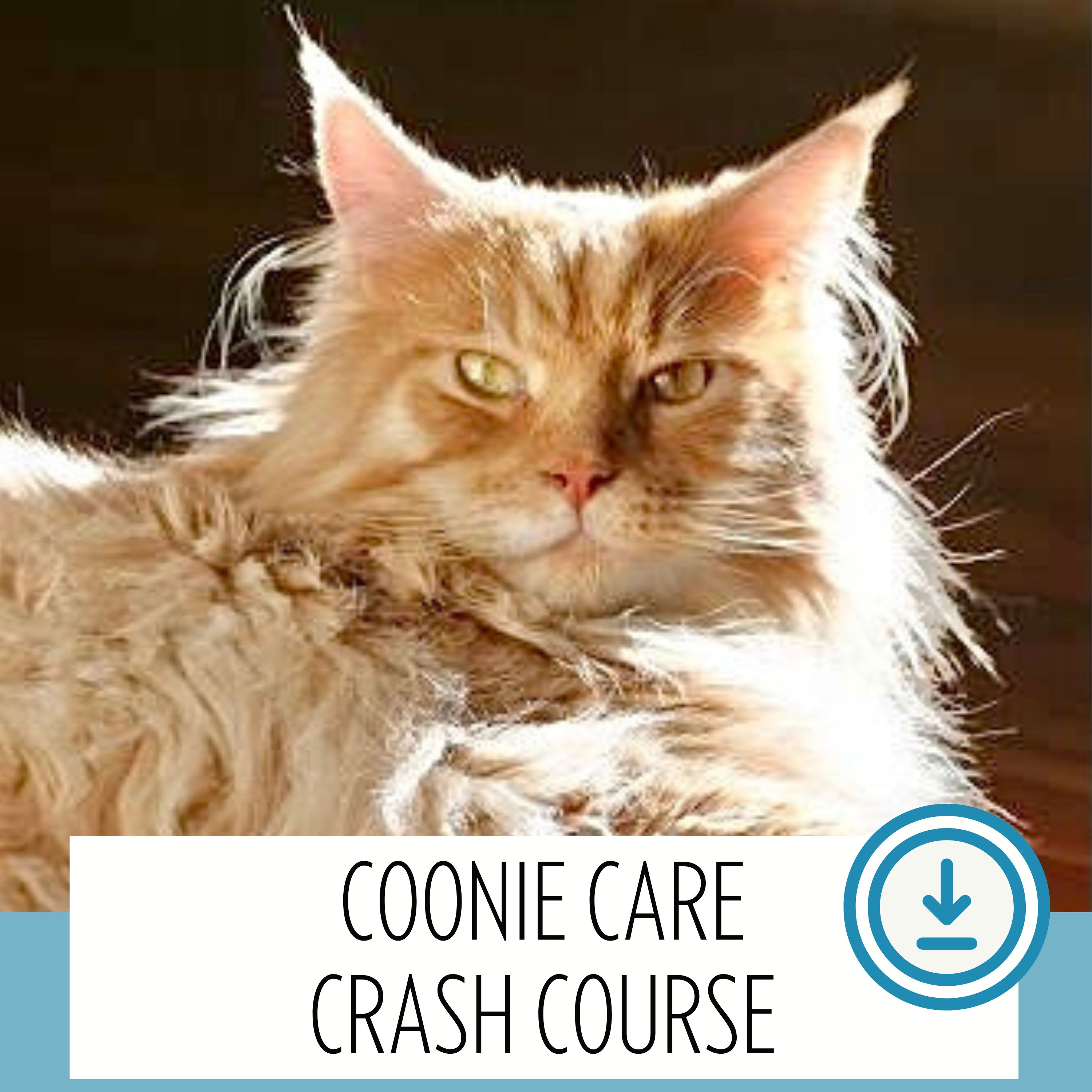
My Alice had a few teeth removed due to a condition the vet explained as essentially an allergy to her own saliva, but I haven’t dealt with anything as severe as Sergiy’s situation.
Sending best wishes to you and Sergiy! I hope others will share their experiences here as well.
Warmly,
Carrie
Feline Gingivitis Comments:
Stomatitis Follow-Up
by: Charles D
Thank you all so much for the notes of encouragement.
I’ve felt so bad over the past week, dealing with Sergiy’s dental surgery and the loss of all his teeth. I know this was the best solution for him, and he seems to be adjusting just fine.
It’s been one week today since the procedure. Reading about others who’ve gone through similar situations and now have happy, healthy cats gives me hope.
That reassurance is exactly what I needed - just to know he will fully recover and live a good life filled with love.
Stomatitis
by: Pat
You absolutely did the right thing. I’ve been through this with four of my cats who had full-mouth extractions (FME), including my Maine Coon at just 10 months old.
They’re all happy, healthy, and eat both wet and dry food without any issues.
Feline gingivitis and stomatitis are incredibly painful conditions, and the only true cure is removing all the teeth. It’s also critical to confirm through X-rays that no roots remain.
I’m glad you didn’t opt for a partial-mouth extraction (PME) because, from what I’ve read, cats often need another surgery later. Everyone here is doing great - only my bank account is suffering! 😺
Beautiful Boy
by: Camille
I’ve seen feline gingivitis and stomatitis in a few cats, and I know it’s a stressful situation for you. But you absolutely did the right thing. It’s amazing how well cats adjust after losing their teeth.
Sergiy will soon be back to his normal self, playing around the house and living pain-free.
Thank goodness you caught it and had it treated. Sending hugs and hope he feels better soon! (As a feline behaviorist, I see this condition in many of my clients’ cats.)
Re: Stomatitis
by: Wendy
My boy, Chat (French for "Cat"), is part Maine Coon. I adopted him from a shelter when he was about 2 years old, and at first, my vet said he was healthy.
A few years later, I discovered he was silently suffering from gum inflammation and pain due to feline gingivitis and stomatitis. While he was eating, he wasn’t consuming as much as he should have been.
After two separate procedures to remove all his teeth, Chat made a full recovery.
His appetite improved significantly, and he even gained weight! At 14 pounds, he’s now a happy, food-motivated boy who loves his grain-free kibble.
Charles, your boy is recovering well, and you absolutely made the right decision.
Thanks to your care, Sergiy has a bright, healthy future ahead. (And you can safely ignore any vet notes about being "overdue for teeth cleaning" now—LOL!)
Teeth
Charles, I’m so sorry this happened to your sweet boy. My girl also had all her teeth removed, and it broke my heart. But like Sergiy, she adjusted wonderfully and is happy and healthy.
Feline gingivitis and stomatitis are heartbreaking to see in our beloved cats, but you did the best, most loving thing for Sergiy.
He knows how much you love him! Don’t waste time feeling bad - just keep giving him all the love he deserves.
Gums
My Maine Coon had all but her two front teeth removed due to stomatitis. She’s doing well now, but the process was both expensive and emotional. I feed her pate-style wet food exclusively, which works great for her.
Health Issues
by: Diana
I don’t have personal experience with feline gingivitis or stomatitis, but I wanted to wish your gorgeous kitty good health. He’s lucky to have such a loving and attentive owner!
Gingiviostomatitis
We have a male Maine Coon who was diagnosed with gingiviostomatitis at just 6 months old.
The vet said we’d either need to remove his teeth or manage the condition with regular gum surgeries every 6–12 months.
We opted to have all his teeth removed, and it was the best decision.
He’s now almost 6 years old, happy, healthy, and rules the house! You’d never know he doesn’t have teeth - no more pain or dental trauma.
Gingiviostomatitis
by: Barb
Hi,
I’m so sorry to hear about your kitty’s dental issues. Unfortunately, feline gingivitis and stomatitis seem to be more common than I ever realized.
My Maine Coon, who’s now almost 11, had most of her teeth removed at age 2 and lost a few more at age 9. She has no back teeth and just a few in the front, but she’s thriving.
She loves wet food but also enjoys crunching on her dry Royal Canin kibble without any issues. Best of luck to you and your sweet boy!
A note about comments: This discussion has been edited for readability, clarity and length. As the nature of the internet evolves, we strive to keep our content as fresh possible!
Comments-enabled pages can become unwieldly, so they are being updated to static web pages.
But with that said, we love community! That's why we've launched a Member's Area, with lots of goodies including the ability to comment, post and discuss all kinds of Coonie topics. It's the place to be if you want to chat and connect with others 🐾
Top of Feline Gingivitis
« Back to Maine Coon Health
Recent Articles
-
New Memory Lane Posts!
Apr 22, 25 07:05 PM
Meet our stunning silver and smoke Maine Coons, from fluffy kittens to regal adults. These beauties were all submitted by our readers in 2023 & 2024!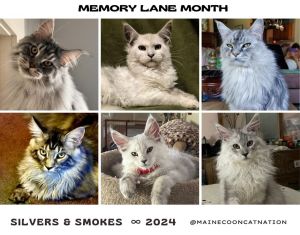
Meet Bertie and Telulah: A Delightful Maine Coon M… -
Memory Lane Success Stories
Apr 21, 25 03:25 PM
As we continue to stroll down Memory Lane, today we feature some of our 2023 Coonies who have charmed their way into the hearts of their families. From Jojo, the clever cameo who still amazes his owne… -
Memory Lane Features
Apr 19, 25 12:12 AM
Perfect for Flashback Friday we have two fresh updates today!
Falling In Love With Georgina: Georgina is a stunning Maine Coon from Australia with royal energy, dramatic coloring, and a personality th…
